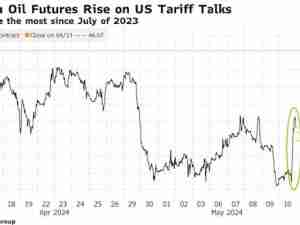Many countries targeted by the US Trade Representative's office in its review of the Generalized System of Preferences (GSP) trade-benefits program "still have very large desperately poor populations," they said in a joint paper obtained by Reuters.
"Revocation of benefits is likely to have a serious detrimental development on the review countries, and particularly on vulnerable populations within them, such as women and low-skilled workers," Oxfam America, the German Marshall Fund, the Carnegie Endowment for International Peace and the Women's Edge Coalition said.
They warned that revoking or reducing trade benefits would hurt US companies who benefit from access to lower-priced foreign goods under GSP.
It also would impair an important economic tool for countries, such as Indonesia and the Philippines "that are central to US security interests," they said.
The groups filed their comments with the US Trade Representative's office, which after the collapse in world trade talks, announced it was considering whether to revoke or reduce trade benefits for 19 large developing countries.
Those include Argentina, Brazil, Croatia, India, Indonesia, Kazakhstan, Philippines, Romania, Russia, South Africa, Thailand, Turkey, Venezuela and six other countries subject to a narrower review.
The Bush administration favors renewing the GSP program, which expires this year unless Congress extends it.
But senior lawmakers, such as Senate Finance Committee Chairman Charles Grassley, are frustrated that two of the biggest beneficiaries of the program -- India and Brazil -- are balking at Washington's demands to open their markets to more US exports.
Grassley, whose committee controls trade legislation, has proposed letting GSP expire to put pressure on large developing countries in the trade talks.
The groups submitted a number of proposals for revamping GSP to make it a more effective development tool. Those include making the program permanent and helping poor countries build up their export sectors.
Washington also should allow the very poorest countries to ship all of their goods to the United States without paying any duties and greatly expand eligible products for more advanced developing nations, the groups said.
They argued revoking trade benefits for large developing countries was unlikely to help poor countries ill-equipped to take advantage of new trade opportunities.
Instead, China, Japan and other more established exporters would probably fill the gap, the groups said. (Reuters)








